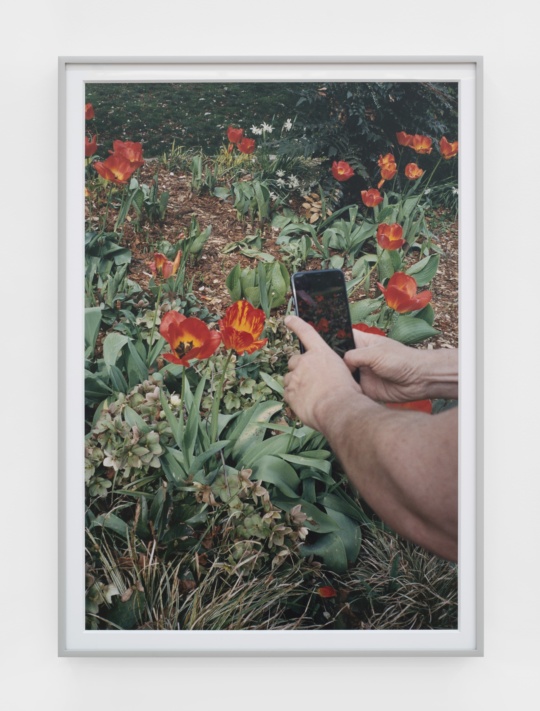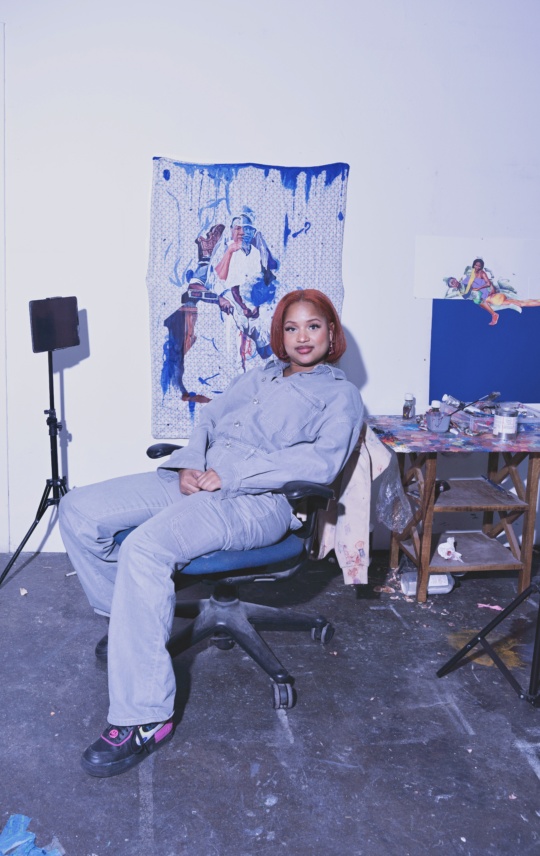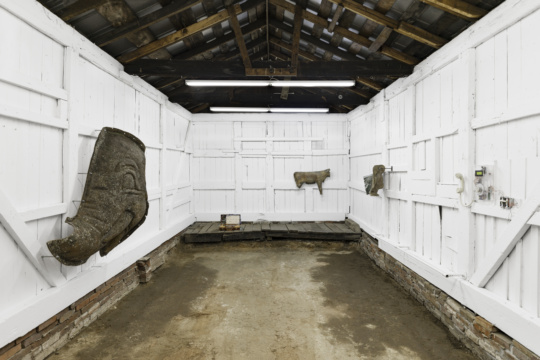
For your summer reading pleasure, BURNAWAY brings you Just Like Suicide, a novel by artist Mery Lynn McCorkle, set in the Los Angeles art world. She writes from experience, having lived for years in Williamsburg, Brooklyn, when it still was the art frontier, and then LA; she now resides in Rome, Georgia. She describes the book as “a compendium of interlocking tales cataloguing self demolition and success in the Los Angeles art scene, from the point of view of artists, dealers and family members.”
We’ll post sequential chapters from McCorkle’s book every Wednesday and Friday over the summer (and on Monday’s beginning in August!). Or click here to buy the book now.
Forty One
Maggie and Madison sat in comfortable chairs as the relationship counselor asked them questions and took notes. Madison, who announced she was the one paying for this session, spoke first and filled four pages in the counselor’s notebook by outlining seven incidents demonstrating Maggie’s reluctance to talk about conflicts in their relationship.
“Maggie, is that short for Margaret?”
“No, for Magdalena but I prefer Maggie.”
“Well, if you prefer the diminutive, that’s fine. Maggie, Madison has very clearly expressed that she feels left out of your life. She feels you don’t share yourself. She has shared how her parents went through a divisive divorce and how that formed her fear of abandonment and her need for openness so she can know with some confidence where she stands. Why don’t you look into your childhood and share the origins of your fears?”
“I don’t want to talk about my childhood. It wasn’t pleasant.”
“That’s a good step, Maggie. Tell us why it wasn’t pleasant.”
“My father was abusive and domineering. I’ve observed that I’m attracted to powerful personalities, people who think they can control me. I see the pattern I’m following, so going over the past seems a bit redundant. What I need are tips to help me figure out how to get out of this dynamic.”
“Only by understanding the past can you move forward.”
“Really? Do you really believe that? I’ve heard that repeated all my life and haven’t once found it to be true. Rehashing the past always seems to be the excuse not to move forward. You hold up this past and examine it from every angle and don’t bother to look beyond it. It’s more like a holding pattern. The way I see it, I can’t change the past but I can change the present and make a different kind of future. I want a different kind of future. So, what steps should I take to get out of this dynamic?”
“Your childhood experiences frame who you are. How can she accept you if she doesn’t know the framework?”
“So this is really about free will and determinism? Who I am is inevitably restricted by my childhood? I can’t remake myself?”
“You’ve sidestepped the question.”
“No, discussing problems in childhood is the formula you use for getting people to open up. That formula is not necessary in this circumstance. If you want candor,” Maggie said, turning to Madison, “I can do that. It’s hard for me to open up with someone who doesn’t accept my silences, my need for privacy to develop my thoughts. The openness you say you want requires trust and it is hard to trust someone who doesn’t respect my needs. You are funny and smart and sensual, Madison. It’s a true pleasure caressing your silky skin. You are an amazing lover. But you apparently think you are better than me. Let me finish before you jump in. Contrary to what you keep saying, I am very aware that all relationships change people. But you have no right to try to straight out remake me. You are quite right to insist that I can’t stay a gallery assistant. I know that. That’s why I applied to UCLA for their masters program in art history. No, let me finish. And I know you don’t think it’s smart but I’ve been accepted and I’m going. That’s what I want to do. Not the business degree, not opening my own gallery. I need to learn more about art before I can figure out my place in all of it. Please let me finish. Every time I’ve tried to explain this to you for the past month, you talk right over me, denying that I know my own mind. Your vision for me is not my vision for me. Why should we even pretend to be a couple if you keep trying to correct me when I do try to share?”




